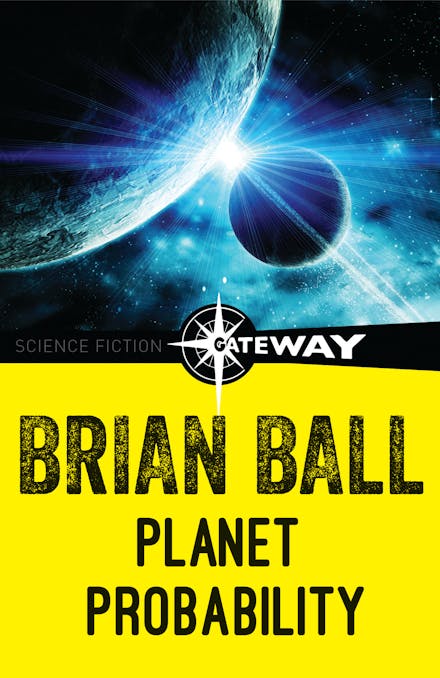Imprint
- Gateway
Fiction, Science fiction
An SF Gateway eBook: bringing the classics to the future.
The Frames were only a realization of the ultimate form of escape. Books, films, sensors, complete total experience - and finally the Frames. The saviors of civilization had shown the way: move the tribes of Americans to Europe, the tribes of the Germans to Spain, the tribes of the English to Switzerland and permutate the combinations endlessly. Use trains, then aircraft, then spaceships.
The Frames of the Thirtieth Century were a logical extension of the Mechanical Age's exploitation of the means of mass travel. Now, whole populations moved to new areas of experience. New worlds - new re-created worlds - were manufactured for them. And it had all begun on Talisker. But whatever had left the monstrous scenery on Talisker's desert had not begun anywhere in our universe.

Brian Ball
Brian Ball (1932 - )
Brian Neville Ball was born on June 19, 1932, in Cheshire, England. Much of his substantial body of novels - sci ence fiction, supernatural, detective thrillers and children's fic tion, beginning in the early 1960s and continuing to date - was produced whilst Ball simultaneously pursued an academic career as a Lecturer in English at Doncaster College of Education, and whilst he was Visiting Professor to the University of British Co lombia, Vancouver.
Like many of his British contemporaries, Ball began by writ ing science fiction short stories for New Worlds and Science Fan tasy, but very quickly made the transition to full-length SF novels, beginning with Sundog in 1965. His early SF novels, whilst action-packed adventure stories, were also rich in metaphysical specula tion, qualities that quickly brought him international recognition, His series of children's books, ranging from nursery to teenage titles, were equally successful.
Of his adult science fiction novels, of special note was his trilogy about an ancient Galactic Federation, Timepiece (1968), Timepivot (1970), and Planet Probability (1973). By 1971 he had begun to diversify into supernatural novels with considerable suc cess, and in 1974 his first detective novel, Death of Low Handicap Man, was published to wide acclaim. It was followed by several crime thrillers.
In 2004 Ball resumed writing fantasy short stories, and was commissioned to write a new Space 1999 novel, Survival (2005), explaining the mysterious disappearance of Professor Victor Bergman from the last series of the Gerry Anderson TV series (for which Ball had earlier authored The Space Guardians in 1975).
In recent years, all of Ball's detective and supernatural novels have been reprinted, along with new novels in both genres, with Gollancz's SF Gateway featuring his earlier science fiction novels.























.png?auto=compress&w=150&h=60&fit=crop&fm=jpg)


.png?auto=compress&w=150&h=60&fit=crop&fm=jpg)

